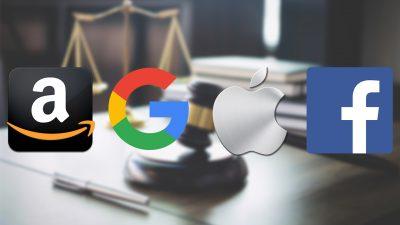What is the Internet of Things?
Examples of IoT devices include smart watches, home security systems and AI assistants
The Internet of Things, or IoT, represents all the internet-connected devices that have the capability to connect to other internet-powered devices.
These connected devices share data and information with each other through the internet.
The data without necessarily requiring human-machine interaction. In other words, IoT is a collection of electronic devices that can share information among themselves," a February report from the Congressional Research Service says.
APPLE TO START REOPENING US STORES WITH IDAHO LOCATION
The way an Apple Watch connects to an iPhone and an iPhone connects to a Macbook is one example of how the IoT operates. Smart devices like Amazon's Alexa and Google's Nest security camera system are other devices within the IoT.
Market research firm IoT Analytics predicts that the number of global IoT devices could increase from 9.9 billion in 2019 to 21.5 billion by 2025, according to a February report from the Congressional Research Service.
The IoT is also becoming more relevant as fifth-generation, or 5G, wireless technology becomes the new standard for wireless infrastructure throughout the United States and the world. The 5G network will be used to enhance the IoT experience by connecting devices faster and more accurately than 4G wireless standard does.
"The development, application, and usage of IoT will likely continue to grow with the deployment of [5G] cellular networks and technologies," the CRS report says. "These allow a larger number of devices to be connected simultaneously to a network and communicate with minimal delays, supporting not only consumer but industrial use of IoT devices and systems."
The report notes that the global IoT industry "expected to grow approximately 37 percent from 2017 to [$1.5 billion] by 2025."
But IoT devices and development have also highlighted serious privacy and cybersecurity concerns related to individuals, local governments and institutions. The CRS report notes that the IoT can be divided by industry including the Internet of Medical Things, Smart Cities and Smart Homes, all of which are at risk of being hacked.
"Connected devices and systems offer the possibility of ubiquitous access, which equates to more possible entry points for both authorized and unauthorized users. As more devices become connected to one another and to the internet, the risk and impact of a compromise increase, along with the possibility of a cascading cyberattack. Data security is a tradeoff to consider between convenience and vulnerability," the report reads.
WHEN WILL THE US HAVE 5G TECHNOLOGY?
Some lawmakers like Sen. Mark Warner, D-Va., have expressed concerns about the IoT and its potential to expose sensitive government information to bad actors.
Warner introduced the IoT Cybersecurity Improvement Act of 2017 to ensure that vendors who supply technology to the U.S. government ensure "that their devices are patchable, do not include hard-coded passwords that can’t be changed, and are free of known security vulnerabilities, among other basic requirements," according to a press release.
The release notes that IoT devices can sometimes be the weak link in a network's security structure, leaving other devices vulnerable to cyberattacks.
GET FOX BUSINESS ON THE GO BY CLICKING HERE
"While I’m tremendously excited about the innovation and productivity that Internet-of-Things devices will unleash, I have long been concerned that too many Internet-connected devices are being sold without appropriate safeguards and protections in place," Warner wrote at the time.
CLICK HERE TO READ MORE ON FOX BUSINESS




















